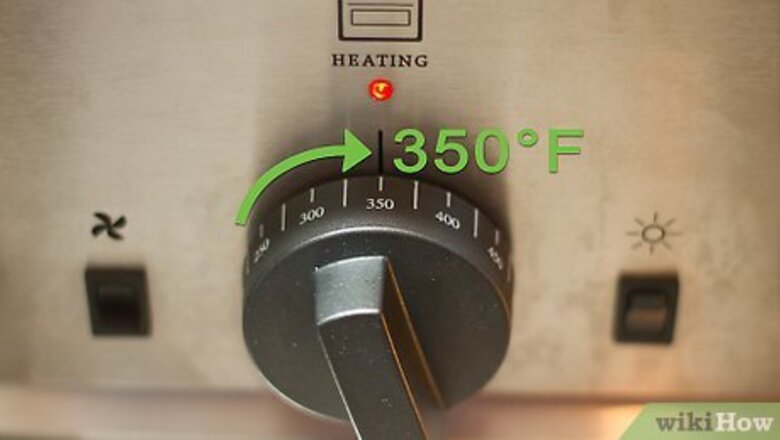
views
Using the Oven
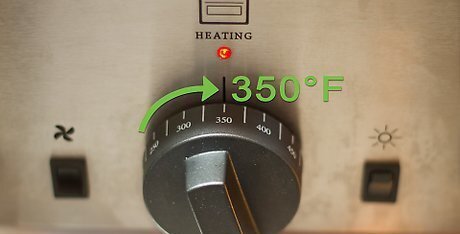
Preheat the oven to 350 °F (177 °C). This is the best temperature for reheating bread. Any hotter and the bread could burn quickly. A lower temperature would require a longer cooking time, resulting in dry bread. If you want a soft interior with a chewy crust, 350℉ (175℃) is the way to go. It's better to slice the bread after reheating rather than slicing it before reheating. Sliced bread will heat quickly and become hard and crunchy if you're not careful. However, if you want to make bread crumbs or croutons, you can slice or dice the bread. Toss it with some melted butter, a dash of salt and pepper and some garlic powder, and you'll end up with a delicious topping for your salad.
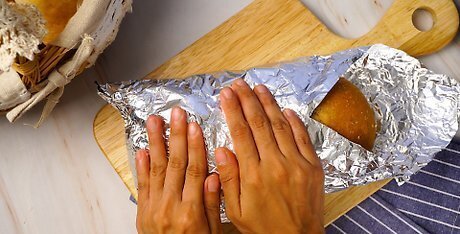
Wrap the bread in foil. This will protect the crust and help stop it from getting burned while the inside of the bread heats. If you try to reheat it unwrapped, the crust could overcook and turn out hard.
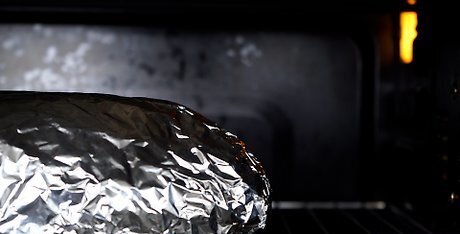
Bake the bread for 10 to 15 minutes. For small or thin loaves of bread such as baguettes, limit the baking time to 10 minutes. For larger, thicker loaves of bread, bake for 15 minutes so the center has time to warm up.
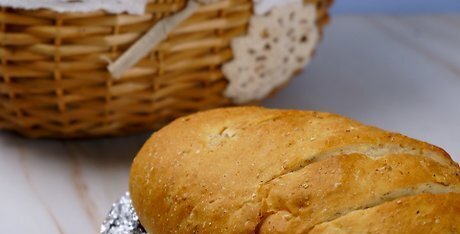
Remove the bread from the oven and serve. Serve the bread right away so it doesn't have time to cool again. Reheating bread a third time probably will result in a less-than-optimal taste and texture.
Using the Stovetop
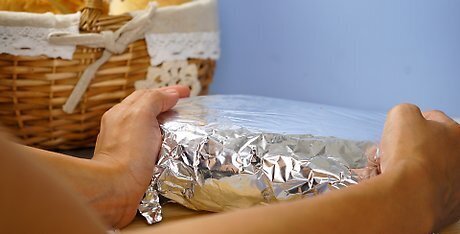
Wrap the bread in aluminum foil. This will help it heat evenly and protect it from getting burned during the reheating process.
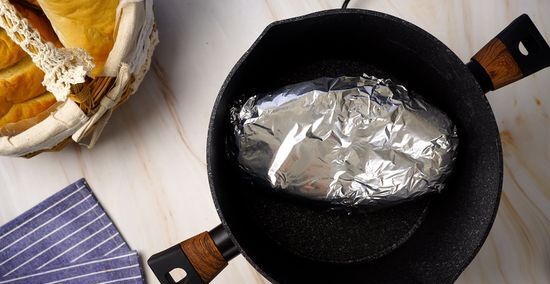
Place the bread in a pot with a lid. Use the smallest possible pot that will still comfortably hold the bread. Put the lid on the pot.
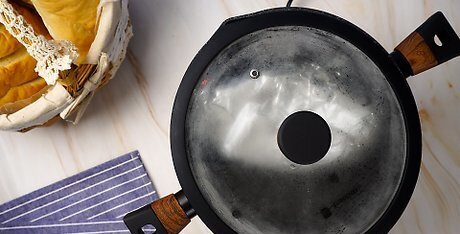
Place the pot on the stove over low heat. The low heat will gently warm the bread. Allow it to warm for about five minutes, then remove the bread and check to see if it has been thoroughly heated. If not, replace it in the pan and warm it for another few minutes. An alternative method is to wrap the bread and steam it in a steamer pan above simmering water. Wrap it well so the steam doesn't get through and make the bread go soft. This method won't really revive a crisp crust, but it's suitable for hard, dry, day-old bread.
Making Toast
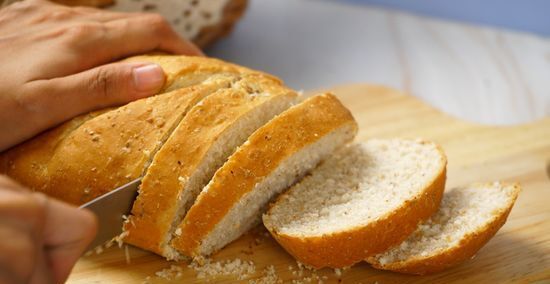
Slice your bread. Use a bread knife to slice it into slices thin enough to fit into your toaster, but substantial enough to hold together when you butter it or use it as part of a sandwich. Keep in mind that the thinner you make the slices, the more quickly the bread will toast, and the crisper it will turn out. You can toast thick, hearty slices in the oven if they won't fit in your toaster.
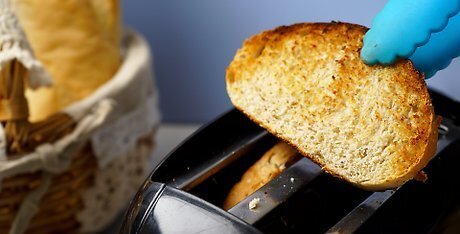
Toast your bread in a toaster. If you're looking for a quick, convenient, and effective toasting method, nothing beats a toaster. Load the bread into the slots, change the setting to your preferred level of doneness, and push down on the knob that lowers the toast into the toaster and turns it on. When the toast springs back up, it's ready to eat. Be careful when you remove your bread from the toaster. You might need to let it cool for a moment if it's too hot to touch. Never stick a knife or fork into a toaster to extract the toast. Unplug the toaster and remove the toast.
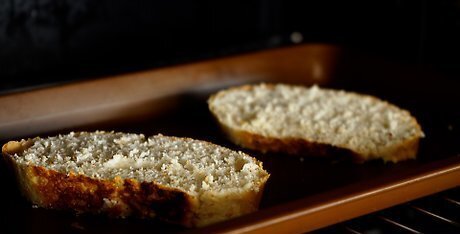
Try toasting your bread in the oven. This adds a tasty gourmet touch, since nothing beats the texture of oven-toasted bread. Turn on the broiler in your oven and let it preheat. Place your bread slices on a baking sheet. Put the baking sheet under the broiler for two to five minutes, or until the bread is toasted to your preferred level of doneness. For extra delicious toast, try buttering the bread before you broil it. You can also melt cheese on the bread to make a great afternoon snack.











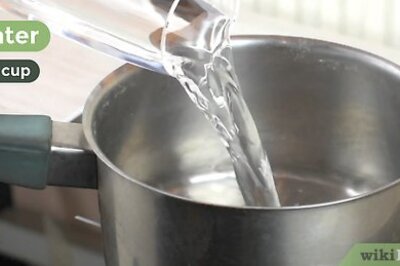




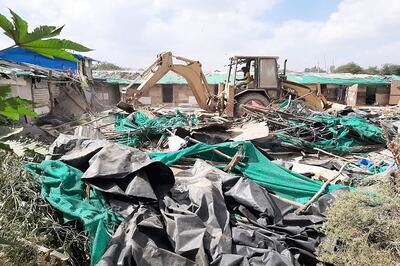


Comments
0 comment